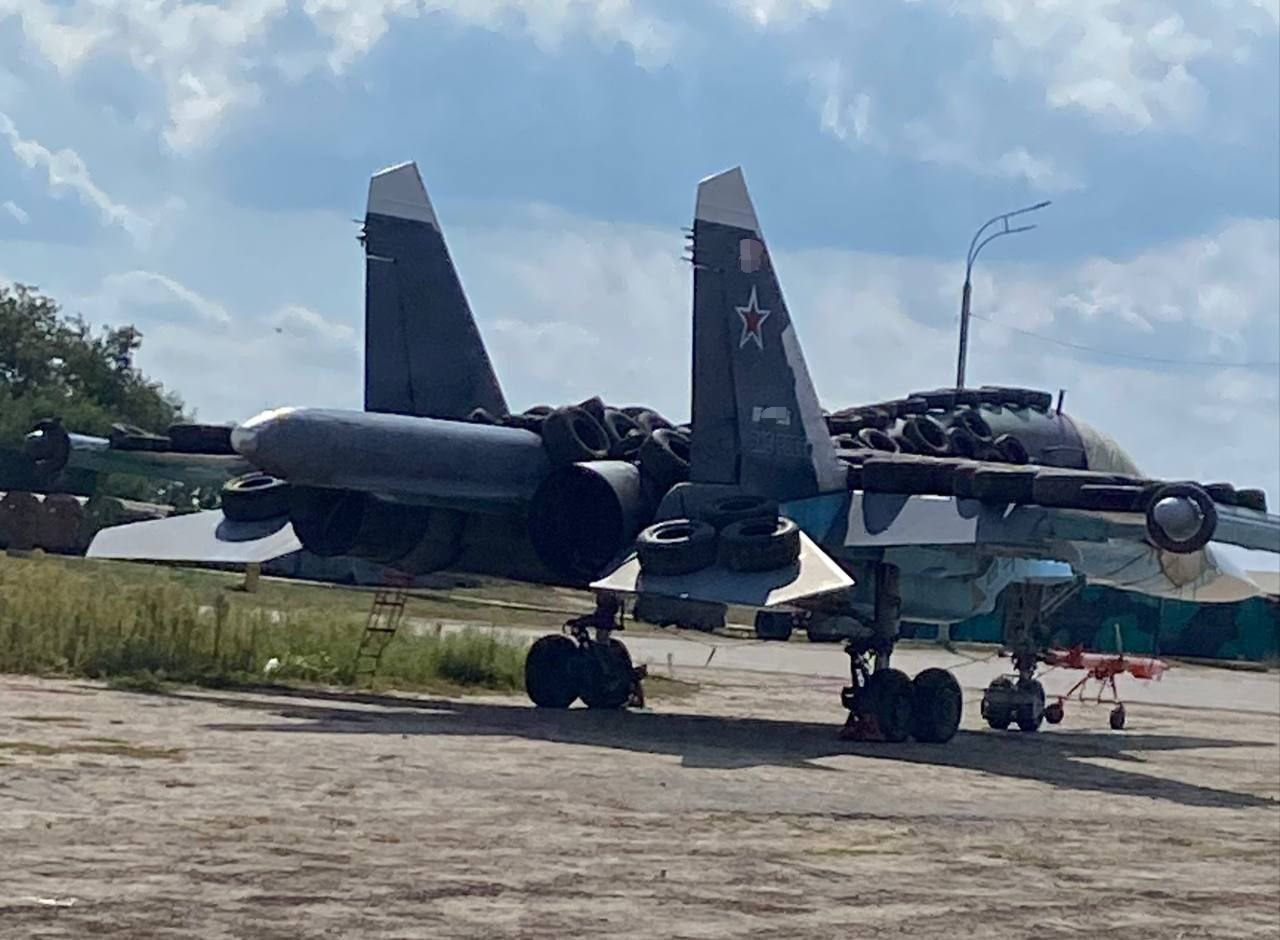Russia’s “Out-of-the-Box” Solution to Counter Ukraine’s Daring Drone Attacks
Recently, Ukrainian attacks, whether using daring drones or cruise missiles on Russian airbases, have escalated, prompting Moscow to adopt these unconventional measures.
(DEFENCE SECURITY ASIA) — To ensure the safety of their fleet Soviet-era of Tu-95 “Bear” strategic bombers based at Engels Air Base 2 in Saratov, Russia, from increasing Ukrainian drone attacks, the Russian military has employed an unconventional approach.
Reportedly, personnel at the primary base for these bombers have painted exact images of the aircraft on the tarmac, likely as decoys or camouflage to confuse Western satellites and the daring Ukrainian drones.
However, military analysts are uncertain about the success of this “out-of-the-box” effort to deceive Western forces because satellites equipped with high-resolution cameras can distinguish between real aircraft and paintings.
Russia’s ruse might only fool satellites with low-resolution cameras.
Engels Air Base in Russia has been a target for Ukrainian forces, which have launched daring drone attacks on the airbase multiple times, striking numerous aircrafts.

This base not only houses Tu-95 bombers but also serves as the “home” to Tu-160 and Tu-22 bombers, which have launched hundreds of cruise missiles at targets within Ukraine.
Ukrainian forces have also targeted several other Russian airbases with long-range cruise missile attacks, such as the “Storm Shadow” or SCALP EG.
“Out-of-the-box” thinking in dealing with Ukrainian drone attacks is also reported to have occurred at Russian airbases in Crimea, according to Open Source Intelligence (OSINT) observers.
OSINT expert Brady Africk has shared satellite images showing fighter jet paintings at Russian air force bases, likely intended to deceive Ukrainian drones and Western spy satellites.
“Russia’s military has taken to painting images resembling military fighter jets in newly constructed areas at Yeysk airbase in Crimea,” Africk tweeted.
Recently, Ukrainian attacks, whether using daring drones or cruise missiles on Russian airbases, have escalated, prompting Moscow to adopt these unconventional measures.

Previously, this “out-of-the-box” approach saw the Russian military covering various sections of their Tu-95 bombers at Engels Air Base 2 in the Saratov region with tires, as seen in satellite images.
Russia hoped that the tires placed on different parts of the aircraft could absorb the impact of drone explosions.
Engels Air Base 2 in the Saratov region is located approximately 700 km from the Russia-Ukraine border.
In December of the previous year, the airbase housing Russian bombers was attacked by Ukrainian drones.
These daring drone attacks resulted in the destruction of two bomber aircraft, and in a subsequent attack the same month, three Russian military personnel were killed.

Following these daring drone attacks, Moscow decided to relocate its aircraft from Engels Air Base 2 to another airbase.
Last month, a Russian military airbase in the city of Pskov was also attacked by Ukrainian drones, resulting in the destruction of two Ilyushin IL-76 transport planes and damage to two others. — DSA

DEFENCE SECURITY ASIA APPS
To advertise contact admin: haikalhamas73@gmail.com


Comments are closed.